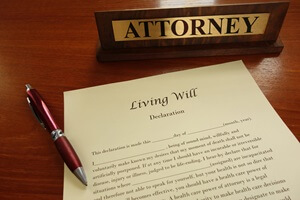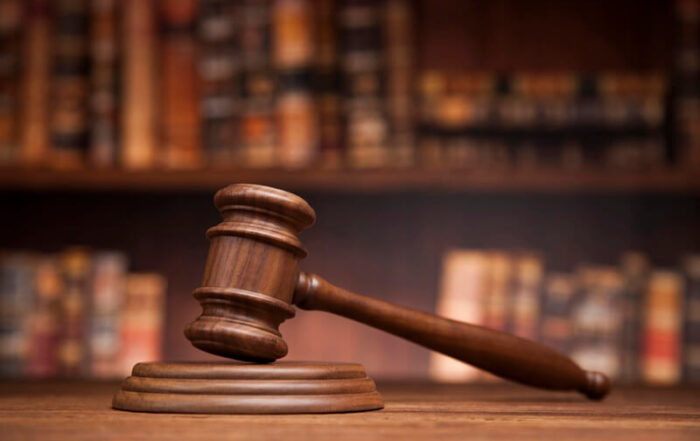What Should You Do If A Family Member Challenges A Will?
The death of a loved one is hard enough without disputes over their final wishes. When a family member contests a will, the process can feel overwhelming. However, like navigating through a foggy road, understanding the proper steps can make the journey manageable.
California’s probate laws offer a path to resolving will disputes. Knowing what to expect is vital whether you’re an executor or a beneficiary. The key is acting quickly, staying informed, and seeking the proper support.
This guide will explore why wills are challenged, the legal process, and steps to protect estate assets.

Understanding Will Contests
Challenging a will is like pulling a thread—it can unravel plans and create conflict. A will contest occurs when someone disputes its validity in court. These challenges often arise due to family tensions or suspicions about the circumstances surrounding the will’s creation. Here are some common grounds on which individuals may challenge a will:
Lack Of Testamentary Capacity
To create a valid will, the person must have testamentary capacity. This means they understand the nature of their assets, their relationships with beneficiaries, and the impact of the will. For example, if a decedent had severe dementia, someone might argue they couldn’t comprehend what they were signing.
Undue Influence
Undue influence occurs when someone pressures or manipulates the decedent into making decisions that don’t reflect their true wishes. Imagine a caregiver convincing an elderly individual to leave them the majority of the estate.
Courts look for evidence of isolation, coercion, or a drastic change in the will’s terms. The goal is to ensure that another’s will doesn’t override the decedent’s intentions.
Fraud Or Forgery
Fraud happens when someone deceives the decedent, tricking them into signing a document under pretenses. Forgery involves creating or altering the will without the decedent’s knowledge. Both claims require significant proof, like handwriting analysis or witness statements, to convince the court.
Improper Execution
California law requires specific formalities for a will to be valid. For instance, it must be signed by the testator and witnessed by two people. If these steps weren’t followed, the will may be considered invalid. Even minor technical errors can lead to disputes, especially when significant assets are involved.
Understanding these legal grounds lays the foundation for effectively addressing a will contest. The next step is taking immediate action to protect the estate and your interests.
Steps To Take When A Family Member Contest A Will
The situation can feel like a fire alarm going off when a will is contested. Swift action is crucial to protect your interests and the estate. The steps you take immediately after learning of a challenge can significantly affect the outcome.
Consult A Skilled Probate Attorney
Your first move should be to seek legal counsel. A knowledgeable attorney can explain the probate process, evaluate the claims, and develop a strategy for your defense. Without proper guidance, it’s easy to make mistakes that could harm your position. They ensure you understand the legal procedures and the evidence to address the challenge effectively.
Secure Documents
Preserving documents is vital. Safeguard the original will, amendments, and related paperwork, such as trusts or asset records. If these documents are lost or altered, it could weaken your case. Store them securely, and consider making copies to share with your attorney.
Notify Interested Parties
You must inform beneficiaries, creditors, and other stakeholders about the contest. Transparency ensures everyone involved knows the situation and their rights. Early communication can prevent misunderstandings and build trust, even amid disputes. Your attorney can help draft proper notices to avoid potential issues.
Pause Estate Distribution
If you’re an executor, stop distributing assets immediately. Continuing distributions while an ongoing challenge could complicate matters or expose you to liability. Instead, focus on securing the estate’s assets and keeping detailed records of all transactions.
Prepare For The Next Steps
Once you’ve addressed the initial tasks, it’s time to start building your defense. This includes gathering evidence, coordinating with witnesses, and preparing for the probate litigation.
As the will contest proceeds, the next phase will likely involve navigating the probate litigation process. This can be a lengthy and intricate legal battle, requiring careful attention to procedural details. Understanding how probate litigation unfolds is critical to managing the dispute and protecting the estate’s integrity.
Key Stages In The Probate Litigation Process
The probate litigation process can feel like a high-stakes chess game—every move matters and strategy is critical. The dispute unfolds through a structured legal process if a will is contested. Understanding each phase helps you anticipate what’s coming and how to respond effectively.
Filing A Petition
The process begins when the challenger files a petition in probate court. This document outlines their objections to the will and the legal grounds for the contest. The executor or other parties must respond to the petition, either defending the will or addressing the claims.
Discovery Phase
During discovery, both sides gather evidence to support their positions. This can include medical records, witness statements, financial documents, and correspondence. Depositions—sworn testimonies taken out of court—are also common. Discovery allows each party to uncover the facts, making it crucial to building a solid case.
Mediation
Many will contests are resolved during mediation, a less formal process where a neutral mediator helps the parties negotiate a settlement. Mediation can save time and money compared to a trial and often preserves family relationships. Both sides present their arguments, and the mediator facilitates discussions to find common ground.
Trial Proceedings
If mediation fails, the case moves to trial. Here, the parties present their evidence and arguments to a judge, who makes a final decision. Witnesses may testify, and professionals, such as forensic handwriting analysts, might provide insights. The trial can last days or weeks, depending on the case’s complexity.
Court’s Decision
At the end of the trial, the judge determines whether the will is valid or invalid. This ruling shapes how the estate will be distributed. If the judge upholds the will, the probate process continues as planned. The estate may revert to a previous will or intestate succession if not.
While navigating the probate litigation process, protecting the estate’s assets becomes a priority. Safeguarding these assets from potential loss or damage during this contentious time is vital. By proactively addressing asset protection, you can ensure that the estate’s value remains intact as the case progresses.
Ways To Protect Assets During Probate
Once the legal proceedings are underway, shifting focus toward protecting the estate’s assets is crucial. During this uncertain time, the risk of diminished or lost assets can escalate. Whether it’s safeguarding real estate, investments, or personal belongings, these steps can help preserve the estate’s integrity.
Appointing A Neutral Administrator
In some cases, disputes among beneficiaries or concerns about the executor’s impartiality can complicate asset protection. When this happens, courts may appoint a neutral third party, often a professional administrator, to oversee the estate. This person ensures all actions are fair, lawful, and in all parties’ best interest.
Inventorying & Securing Assets
The first task in protecting estate assets is creating a comprehensive inventory. Executors must identify all assets, including real estate, bank accounts, investments, and personal property. These assets should be appraised and secured to prevent theft, damage, or unauthorized access.
Preventing Unauthorized Access
It’s critical to limit access to estate funds and property. Executors should close or freeze certain accounts to prevent misuse or fraud. If disputes escalate, seeking a court order to restrict access to contested assets may even be necessary. Detailed record-keeping, including receipts and transaction logs, helps demonstrate responsible management.
Addressing Creditor Claims
Protecting assets also means handling debts and claims appropriately. Executors must notify creditors of the probate process and assess the validity of claims. Legitimate debts should be paid in order of priority, as outlined under California law.
As you work to safeguard the estate’s assets, it’s essential to recognize that the probate process can be complex and challenging. This is where a skilled probate law firm can offer invaluable support.
Los Angeles Probate Attorneys Resolve Disputes
We at Los Angeles Probate Attorneys firm understand that probate disputes can be emotionally charged and legally complex. Our team is dedicated to resolving conflicts efficiently and fairly, ensuring that your loved one’s wishes are honored and the estate is managed with integrity.
Whether you are facing a contested will or disagreements regarding the validity of a trust, our experienced attorneys are here to guide you through the process. We leverage our deep understanding of California probate law to develop tailored strategies that protect your interests and minimize conflict.
From mediation and negotiation to representing you in court, we work tirelessly to achieve a positive outcome for you and your family. Let us handle the legal complexities while you focus on what matters most—finding peace of mind and resolution.
Summary
If a family member challenges a will, the situation can be overwhelming. However, taking swift and informed action is crucial to protecting the estate and resolving the dispute. A skilled probate attorney can help you understand your legal rights, safeguard essential documents, and respond to challenges effectively.
By securing the estate’s assets and navigating the legal processes—such as filing petitions and exploring litigation—you can help ensure the estate’s value remains intact. With the support of Los Angeles Probate Attorneys, you can manage the probate process efficiently and work towards a fair resolution.









